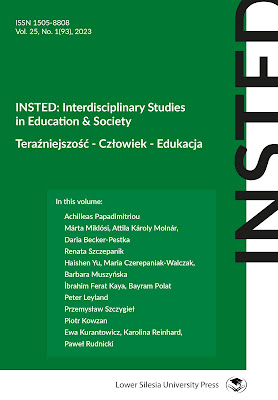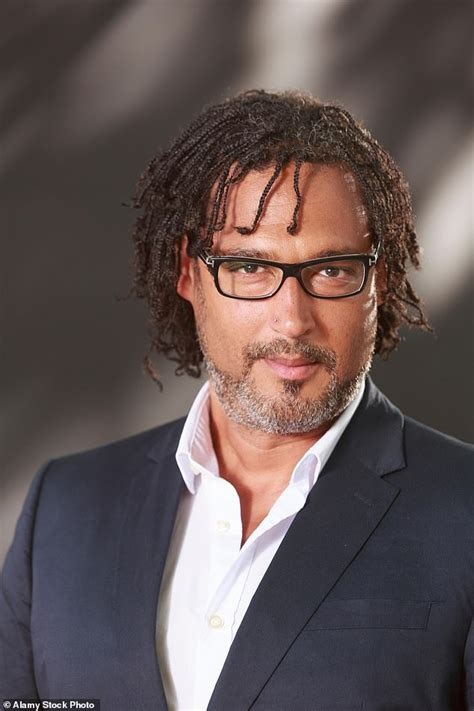A Bit of Bibliotherapy -- Peter Leyland
One morning last week, owing to a fault in the town’s water supply, I had to move from Coffee1 to a new establishment for my morning cup of Americano. I was reading a book called Our Spoons Came From Woolworths by Barbara Comyns. The hardships described in the book of living without much money recalled to me my early married life back in the seventies when I lived in Guildford as a young teacher. It also occurred to me that The Verdetto Lounge where I was sitting was itself a Woolworths store many years ago. The vagaries of chance and its connections are multiform.
The historian David Olusoga has recently produced an excellent series of BBC programmes called Union about the union between England, Scotland, Wales and Northern Ireland. He first came to my attention when he was presenting a BBC programme called A House Through Time. In it he explored the history of a house on Falkner Street in Liverpool, a stone’s throw away from my old school. Olusoga had himself studied history at Liverpool University.
Although I had sat glued to that first broadcast of A House Through Time and later programmes about houses in Newcastle, Bristol and Leeds, it is Olusoga’s series called Africa Turns the Page that I am concerned with in this blog. His programme about African literature inspired me to teach a course about African novels and publish an article about it. The article appeared last month in INSTED: Interdisciplinary Studies in Education and Society, pictured above.
Davis Olusoga’s programme about African writers and their work was broadcast during the lockdown of 2020 when I was searching for some way into the teaching of the course on African novels that had been agreed with my students, pre-pandemic. In the programme David Olusoga says that Achebe put Africa on the literary map and he clearly did more than that. Achebe’s novel, Things Fall Apart, one of four that my students would look at in detail during the course, was the first novel to examine the break-up of tribal life in Nigeria. Eventually, Achebe was exiled because of his criticism of the Nigerian government. When he died in 2013, his funeral was one of the largest in Nigeria’s history.
In the 1960s the time was right, says Olusoga, for African writers to tell African stories. Heineman began to publish these in distinctive editions. One writer who benefited was Ngugi Wa Thiongo’o. He had witnessed at first hand the cruelty of colonialism in Kenya and in 1964 he published a novel, Weep Not Child, which was about British attempts to suppress the Mau Mau. He went on to publish others and one, Devil on the Cross (1980), is a satire on how robbery of mineral wealth from countries like Africa had made possible the success of the Western world.
Olusoga explains that Ngugi had abandoned writing in English after A Grain of Wheat (1967) and wrote in his own language, Gikuyu, saying that he didn’t want to write in a language that his mother couldn’t understand. As a professor of English Literature at The University of Nairobi in 1967, Ngugi argued that after colonialism a university in Africa should teach African Literature. His writing eventually led to his arrest and imprisonment by Daniel arap Moi. He wrote his novel Devil on the Cross on prison-issued toilet paper.
Achebe, however, as Olusoga shows, thought that English was the best way for African writers to get their message across. Other African writers mentioned in his programme include Ayi Kwei Armah, a Ghanian who wrote The Beautyful Ones Are Not Yet Born (1968). His novel is about corruption in post colonial Ghana. Armah said that, although white colonial rule was over, the new rulers of the country are “black (men) trying at all points to be the ghosts of Europeans”. Their flight away from blackness into whiteness can only mean that their power comes from “white masters”. He also wrote Two Thousand Seasons (1973), which explores the complicity of African peoples in their subjugation, first by the Arabs and then by the Whites.
Returning to Nigeria, a civil war in Biafra in the 1960s, which many of my generation will remember, had brought the ideals of the newly formed country crashing down. Many African writers emerged from this struggle, including Ngozi Adichie, who in Olusoga’s programme introduces Wole Soyinka. (My course covered Adichie’s contribution in some detail, including Half of a Yellow Sun and Purple Hibiscus, both ground-breaking works of African Literature.) Wole Soyinka, Adichie has said, was jailed for trying to broker peace during the conflict. He wrote Season of Anomy (1973), one of his only two novels, about the quest of the lead character, Ofeyi, to find ethical and moral solutions to inequalities. A prolific writer of poetry and plays, Soyinka won the Nobel Prize for Literature in 1986, the first African to win it.
Olusoga goes on to ask, does an African novel have to be set in Africa? He then introduces Buchi Emecheta. Living in London, Emecheta produced In the Ditch (1972) a novel about an African woman living in poverty in North London alone with her five small children and how she finds common cause with her white working-class neighbours. Olusoga uses another BBC programme to show her explaining about how her husband burned her first novel. In 1983 she was featured in Best Young British Novelists. She had also written The Joys of Motherhood (1979): ‘a most ironic title’, says Olusoga. Emecheta’s son didn’t realise that his mother was a celebrity when he was a child, and he has now republished her books.
I taught the course successfully and went on to write the article that has just been published: for this I was up against two challenges’ first how to write about the course without reducing it to a tale of stereotypical teaching episodes such as plot and character studies and second, how to write about the issue of colonialism which one or two students had raised. I had dealt with the first by listening to what the students wanted and by the beginning of the third session they had made it clear to me that they wanted to talk about the characters and the connections that they had made with them, rather than the stories. As Achebe had said about his own teaching:
“I tell my students, it is not difficult to identify with somebody like yourself, somebody next door that looks like you.
What’s more difficult is to identify with someone you don’t see, who’s very far away, who’s a different colour, who eats a different kind of food.
When you begin to do that then literature is really performing its wonders.”
It was easy to quote from Achebe in the article that I wrote but dealing with colonialism was more challenging. It involved a number of back-and-forth rewrites with the INSTED editors who were keen for me to clarify the issue. In so doing I discovered the work of Edward Said who discusses the colonial references which appear in the work of writers like Jane Austen, Charlotte Bronte and Rudyard Kipling. 'Kipling’s Kim,' I wrote, 'is a character who has the power to transcend the cultural boundaries between white and brown.’ As literary critic Sally Minogue says, Kipling has 'the great imaginative strength of all writers – to lead us into a world that makes its own sense', and in my experience of reading novels she has hit on something here. My INSTED article was eventually finished to the editors’ satisfaction and reached the world in publishable form.
With Sally Minogue’s words in mind and to return to how I began this blog – I finished reading Barbara Comyns’s semi-autobiographical novel, a tale of the experience of being hard up and abandoned, just as Buchi Emecheta’s character was in her novel In the Ditch. Comyns’s character, Sophia, is pushed from pillar to post with two little ones to look after, one of whom dies from scarlet fever, but she is a survivor and the clouds do pass. As I finished the book, a happier future for Sophia began to emerge. Wherever you are, Lagos, Nairobi, Ghana, Lahore or North West London, Literature has always something to show us, making its own sense about ourselves and our connection to others in the world. I also have the historian David Olusoga, originally from Nigeria himself, to thank for leading me towards making these connections.
References:
Peter Leyland: Interdisciplinary Studies in Education and Society, Vol. 25, No. 1 (93), 2023
Sally Minogue Kim. The Wordsworth Blog (2022)
David Olusoga presenter of Africa turns the page: The novels that shaped a continent (Uplands Television, October 2021)
Barbara Comyns; Our Spoons Came From Woolworths (1950) Virago


Comments
Ngugi's determination to write in Gikuyu encapsulates the classic dilemma: do you celebrate the beauty of your own language, to a necessarily small audience, or do you write in a language that has a much bigger readership? Welsh writers have also wrestled with this, with R S Thomas going for English and Caradog Prichard for Welsh, with the inevitable consequence that Thomas's poetry is better known. A difficult one.
I read Things Fall Apart when my son did it for GCSE and was struck by its grandeur: deceptively clear prose delivering such devastating tragedy. I'm afraid my son didn't enjoy it much but then you aren't meant to.
Congratulations on your INSTED article!